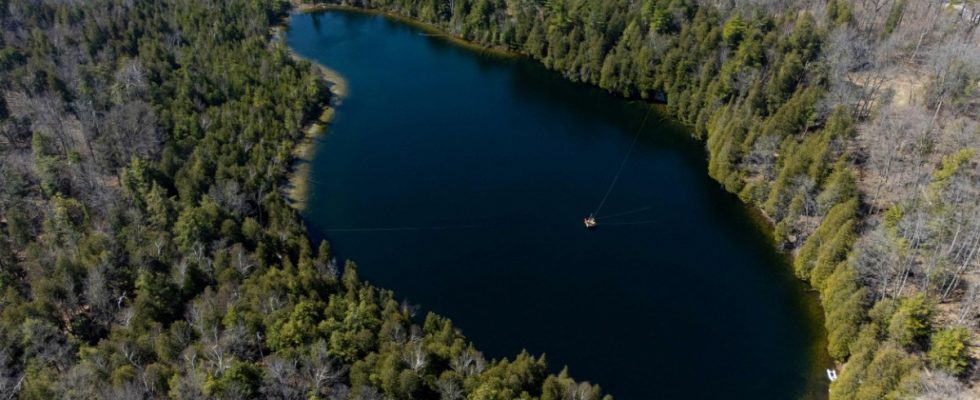Have humans changed the earth so profoundly that they have triggered their own geological era, the Anthropocene? Scientists have been arguing about this question for more than 20 years, after Nobel Prize winner Paul Crutzen first called for such an epoch in 2002 in view of climate change.
Now, however, efforts to address the Anthropocene have suffered a significant setback. As it became known on Tuesday, a group of geologists voted against a definition of the Anthropocene as a new geological epoch by a surprisingly clear margin of twelve votes to four. It is currently unclear whether the proposal still has a chance.
The influence of humans on the planet is clearly evident in many ways: the sharply rising global temperatures, the growing mountain of plastic waste and the accelerating loss of biodiversity are just a few of many examples.
Only recently there was a breakthrough – now disappointment follows
Nevertheless, these changes alone are not enough to define a new geological epoch. To do this, human influence must also be detectable in the soil using geological methods. And not just today, but also in thousands or even millions of years – just as traces of the asteroid impact that once wiped out the dinosaurs can be found at a certain depth practically everywhere in the world.
The “Anthropocene Working Group” (AWG), a working group of the International Union of Geophysicists (IUGS), had been attempting a definition since 2009. After years of discussion, there was a breakthrough last year: The AWG agreed to call Lake Crawford in Canada a kind of key witness to the Anthropocene. According to the researchers, the anthropogenic influence is very clear in this rather isolated lake near Toronto: Fly ash from the combustion of fossil raw materials is constantly deposited at the bottom of the lake, like in a planetary archive. From around 1950 onwards there are also traces of plutonium, remnants of atomic bomb tests from that time. Since these radioactive substances last for particularly long periods of time, plutonium was intended as a “primary marker” for the Anthropocene. Based on such traces, the beginning of the new era could then have been proven elsewhere in the world.
The Anthropocene Working Group’s proposal was originally intended to be voted on by several other committees one after the other, up to the IUGS as a whole. But now the next highest level has already opposed the proposal, the “Subcommission for Quaternary Stratigraphy” (SQS). Geoscientists refer to the Quaternary period as the youngest period in Earth’s history, 2.6 million years ago. This also includes the “Holocene”, the current epoch, which has lasted around 11,000 years.
It is difficult to assess why the proposal met with widespread rejection. It is conceivable that some on the 18-member SQS panel consider Lake Crawford unsuitable for detecting the Anthropocene there, or plutonium as a primary marker – or the 1950s as the proposed start of the new epoch. “Human influence goes back much deeper into geological time. If we ignore that, we ignore the true impact that humans have on our planet,” said Mike Walker, a committee member and honorary professor at Aberystwyth University in Wales, who New York Times. Jan Piotrowski, a geologist from Aarhus University, made a similar statement in the paper: “What happened at the time when agriculture began? What about the industrial revolution? What about the settlement of America and Australia?” The proposed definition limits the meaning of the Anthropocene too much, says Piotrowski.
What will happen next is still unclear. “Regardless of the vote, the AWG is fully behind their proposal,” Anthropocene Working Group Chair Colin Waters of the University of Leicester wrote in an email. “A return to the stable conditions of the Holocene is no longer possible,” said Waters. Many scientists involved would like to “continue as a group.” According to the geologists’ current rules, if the application is rejected, a new attempt will only be possible in ten years. Waters plans to announce details of the further procedure soon.
“I would assume that the work of the AWG will continue,” says Reinhold Leinfelder, paleontologist emeritus from the FU Berlin and voting member of the AWG. First of all, it must be clarified whether the SQS has “discussed sufficiently” and whether some arguments may not have been sufficiently taken into account. In this case, the vote could possibly be repeated, Leinfelder hopes. In any case, one thing is clear: “We have sufficiently proven that humans have a huge influence on the earth.”

